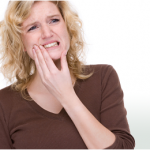
Is bruxism considered as a disease?
No, it is not a disease. Teeth grinding or bruxism is a type of parafunctional habit. Parafunctional habit is the habitual exercise of a body part in a way that is other than the most common use of that body part.
Is bruxism common?
Bruxism is a very common habit and it occurs in 5% to 20% of adults and in children which are five to six years old.
Our teeth make contact with each other for a total of 17.5 minutes per day.
This will not cause damage to our oral tissues.
But if there is presence of excessive occlusal stress etc from teeth grinding which exceed the limit of our tissue adaption, it will damage the underlying supportive tissues and leads to periodontal disease. (This is known as occlusal trauma)
Normally bruxism patients will not be aware about their bruxism habits unless informed by someone else as teeth grinding often occurs during our sleep.
Bruxism produces excessive stress that can damage our periodontal tissues, bones, and temperomandibular joint which causes loose teeth, sore and discomfort jaw.
Bruxism happens subconsciously, which means  our masticatory muscles are still working when our brain is not active.
Main causes of teeth grinding:
1) Nervous tension, anxiety, psychological stress.
2) Occlusal interference.
Occlusal interference is hindrance that interfere our teeth from occluding into a proper position.
It can results from
1) Dental treatment – Dental surgeon failed to polish restored cusp and cause changes it how you occlude your teeth. Normally this is prevented by checking whether there is any high points using an articulating paper. Marks from articulating paper will serve as a guide to trim and reduce the interference.
2) Badly designed partial dentures which place excessive stress on certain teeth.
3) Fail to replace lost teeth and leads to drifting/migration of teeth and change the way we occlude our teeth.
Psychological factor can be an initiating factor to teeth grinding or can perpetuate teeth grinding due to presence of occlusal interferences.
Signs and symptoms that lead to the diagnosis of bruxism are:
1)Â Â Â Â Â Teeth which are severely attrited. Cusps of teeth seem to be flat and lost their normal contour and appears greater that what you might expect for his age
2)Â Â Â Â Â Sensitive teeth due to wearing of cusps.
3)Â Â Â Â Â You feel that your teeth are mobile and loose. Dental surgeon will check and determine the severity of your teeth mobility.
4)Â Â Â Â Â Jaw pain/ discomfort , or clicking sound during mouth opening are signs where your temperomandibular joint is damaged due to bruxism.
5)Â Â Â Â Â Widen of periodontal ligament space in radiograph.
Other associated symptoms are headache, neck pain, anxiety, stress, etc
Treatment for teeth grinding:
-Motivation from patient is important in eliminating teeth grinding habit especially if teeth grinding is done consciously etc daylight grinding.
– Find out the cause of teeth grinding, whether it is due to psychological factor such as stress, anxiety. Psychological consultation and relaxation therapy can help to reduce teeth grinding habit to a certain extent.
– If teeth grinding is due to presence of occlusal interference as we have mentioned earlier, your dental surgeon will normally check where the interferences are located and grind them down. This is called selective grinding.
– Bite guards are available over the counter or custom made to prevent excessive forces on teeth and its supporting tissues. Bite guards are made of acrylic, (material which used to make dentures). Bite guards are normally worn during night time or day time based on your grinding habits.
Teeth grinding may seems to bea small problem to some people. Bear in mind that it leads to periodontal and joint problems. You wouldn’t want to lose your teeth at a very young age, don’t you? If you have been told by your partner/family members that you are grinding your teeth at night, do not hesitate to consult your dentist and get a solution to treat it as soon as possible before it’s too late.